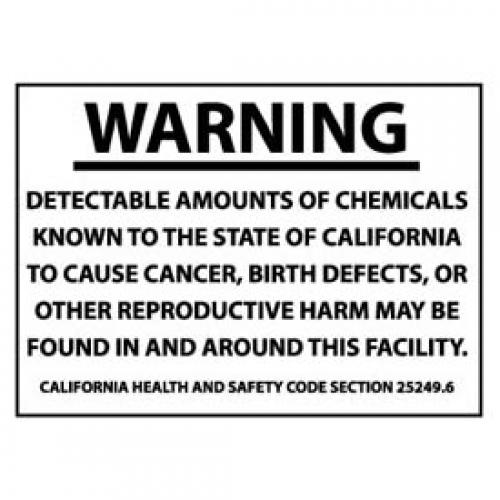Proposition 65 Warning
What is Proposition 65?
The Safe Drinking Water and Toxic Enforcement Act of 1986, commonly known as Proposition 65, requires the State of California to publish a list of chemicals known to cause cancer or birth defects or other reproductive harm. Businesses are then required to notify Californians about significant amounts of these chemicals in products that they purchase, in their homes or work environments, or that are released into the environment.
What kinds of chemicals are listed?
The list is composed of both naturally occurring and synthetic chemicals known to cause cancer, birth defects, or other reproductive harm. Common examples include food, drugs, dyes, solvents, or common household products. Chemicals listed may also be used in construction or manufacturing and/or produced as a byproduct of chemical reaction.
What kinds of requirements does Proposition 65 place on businesses?
A "clear and reasonable" warning must be posted inside businesses before intentionally and knowingly exposing anyone to a chemical on the Proposition 65 list. This warning can take different forms, such as a product label, sign on a place of business, notices distributed throughout an apartment building, or a notice in a newspaper. The warning must be provided 12 months after a chemical has been added to the Proposition 65 list.
Proposition 65 also applies to companies doing business in California, and therefore restricts companies from knowingly discharging Proposition 65 chemicals into sources of drinking water.
What does a warning mean?
If a Proposition 65 warning is present, the business issuing the warning believes or is aware that one or more listed chemicals are present. By law, a warning must be given for listed chemicals unless exposure is low enough to pose no significant risk of cancer or is significantly below levels observed to cause birth defects or other reproductive harm.
